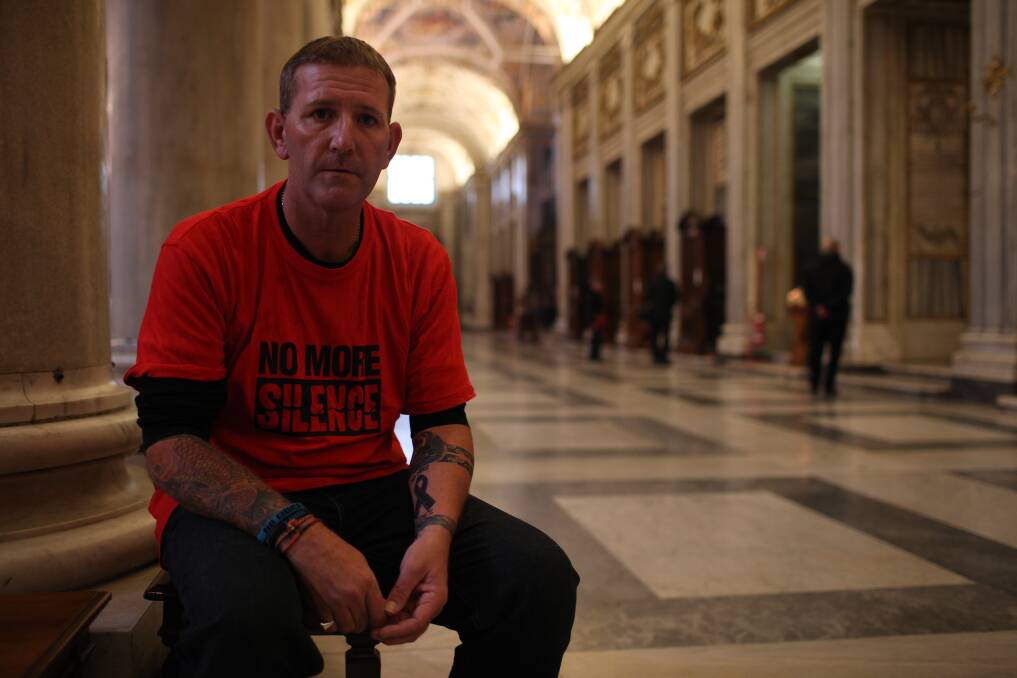
SEXUAL assault victim Paul Levey has lodged proceedings in the Supreme Court against the Catholic Diocese of Ballarat.
Subscribe now for unlimited access.
or signup to continue reading
He has decided to take the matter to court, rather than seek compensation via the national redress scheme because he wants a formal apology.
"I want them to stand up and say sorry," Mr Levey said.
He said the redress scheme preyed on vulnerable victims.
"I'm lucky enough that I can afford to hold off and go to court," Mr Levey said.
"Some people can't afford to hold off - they're sick, a lot of them have got addictions."
Mr Levey said the maximum redress payment of $150,000 for victims was a disgrace.
In addition to that, the average payment is about $30,000 to $35,000, Mr Levey said.
"I'd like to urge victims to seek legal advice before going to the redress system," Mr Levey said.
"People need to know what their rights are."
At age 14, Mr Levey was sent to live with Gerard Ridsdale at the Mortlake presbytery.
His Catholic parents put their faith in the priest to care for their son after the breakdown of their marriage.
What ensued for Mr Levey was a living hell in which he was subjected to daily sexual abuse by Ridsdale.
His abuser ensured his victim kept quiet for the eight months he resided with the priest.
Mr Levey, 51, suffers from Post Traumatic Stress Disorder.
"I'm off work at the moment, there are days when I don't get out of bed," he said.
Mr Levey said the redress system did not allow victims to appeal an offer of compensation made, something which needed to change.
"If you apply and don't take the first offer, that's it," he said.
In addition to that, Mr Levey said urgent changes to canon law were needed.
"You can say you're protecting children as much as you like but if they go to the confessional and the perpetrator tells the priest what they've done and they tell them to say 10 Hail Marys, that's not protecting them," Mr Levey said.
His comments come after a federal parliamentary committee said the national redress scheme must be overhauled if it is to provide justice for child sexual abuse survivors.
The cross-party committee is also demanding churches and charities be penalised if they refuse to participate.
It also wants significant changes to the $3.8 billion scheme made now, including increasing the maximum amount of compensation survivors can receive.
"The report has found that, as it currently operates, the redress scheme is at serious risk of not delivering on its objective of providing justice to survivors," it said.
Institutions that have not yet signed up to the scheme are being named and shamed but the committee said more pressure was needed.
The committee also cited concerns that some institutions may be using the redress scheme as leverage when negotiating legal settlements with survivors seeking higher compensation payments.
It called on the Commonwealth, state and territory governments to agree to increase the maximum redress payment from $150,000 to the royal commission's $200,000 cap.
Lawyer and victims' advocate Dr Judy Courtin said the assessment framework created a hierachy of abuse and failed to recognise the impact on victims.
"It traumatises, it is unfair and it is unjust," she said.
About 60,000 survivors are eligible under the scheme that began last July, which has so far received more than 3300 applications and made 115 redress payments."
The Department of Social Services said the average payment for the National Redress Scheme as at March 2019 was $81,346.
The department said people who do not agree with a redress decision will have an opportunity to request a different Independent Decision Maker review their original application. A review may keep the original decision, change the original decision or make a new decision.
If the original decision is confirmed, the person seeking redress will receive an additional two months to consider whether to accept or decline the offer.
If a different decision is made, a new written offer for redress will be provided and the previous offer will be withdrawn. The person will have six months to consider the new offer.
- *This story has been updated to include comments from the Department of Social Services














